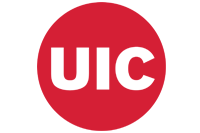
The John Marshall Law School and the State Intellectual Property Office (SIPO) of the People’s Republic of China, also known as the Chinese Patent Office, hosted “The Future of the Chinese Patent Landscape: Law and Regulation Updates, IP Monetization & the Impact of ITC Investigations” on December 6.
John Marshall and SIPO’s Chinese Intellectual Property Training Center brought together policymakers and thought leaders from the U.S. government, academia and private enterprise to offer up-to-date information on the state of intellectual property in China. Presenters shared their insights on critical issues involving China IP.
The event consisted of three presentations. The first was led by Chengbo Fan, an Associate Researcher of Patent Examination at SIPO’s Patent Examination Cooperation Center. Fan discussed new rules related to Chinese patent examination regulations. The second speaker was Robert McSorley from Ocean Tomo, an intellectual property merchant bank that provides companies with financial services related to IP and intangible assets. McSorley spoke about IP monetization as it relates to Chinese patent regulations. Finally, James Coughlan, who is a partner at Perkins Coie, discussed how ITC investigations affect the stability of Chinese and U.S. companies’ IP rights.
John Marshall’s relationship with China began in 1993, with the first SIPO Commissioner traveling to the U.S. in a fact-finding trip to identify one law school to train future SIPO examiners in IP law. The program quickly attracted other Chinese students—including judges, prosecutors and academics—to John Marshall. In return, John Marshall professors and students have visited and lectured at the China IP Training Center of SIPO and various universities and bar associations.
John Marshall law students first began traveling to China to study in 2004. The American Bar Association formally approved John Marshall’s summer study program in China in 2009. The program features a comparative court procedure/mock trial that helps participants understand differences between the Chinese and U.S. legal systems.
Also in 2009, John Marshall created The Chinese Intellectual Property Resource Center (CIPRC). The CIPRC is the first legal educational center in the U.S. dedicated to the study and development of Chinese IP rights issues. The CIPRC has provided LLM graduate education and advanced short-term courses in IP law to Chinese IP specialists, lawyers, patent examiners, judges and academic scholars from SIPO and U.S. lawyers and law students.

